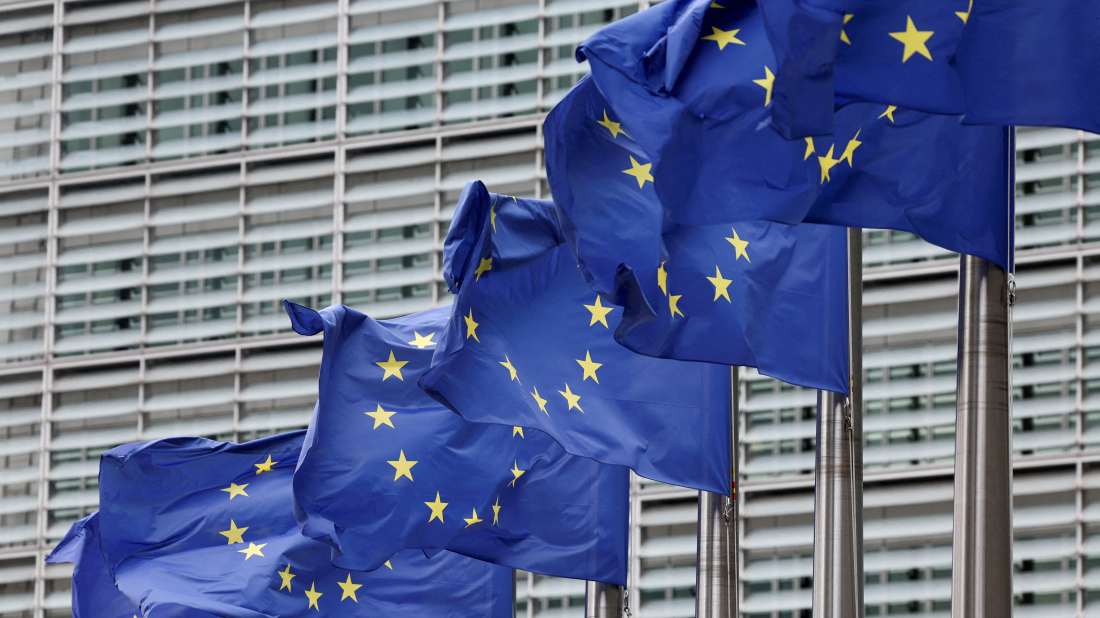Ukraine imposes new sanctions targeting Russian maritime and defence supply chains
Ukraine’s President Volodymyr Zelenskyy has approved new sanctions targeting Russian maritime operators, defence-linked companies and individuals co...

The European Union is set to propose a 19th package of sanctions targeting Russia’s oil industry and shadow tanker fleet, while also extending its current measures on individuals tied to the ongoing war in Ukraine for another six months.
The European Commission is expected to present a proposal on Wednesday for the 19th sanctions package against Russia in response to its ongoing invasion of Ukraine, EU diplomats revealed on Friday. The new package will primarily target Russia’s shadow tanker fleet, banks, and impose further restrictions on the sale of Russian oil. Additionally, Kaja Kallas, the EU's chief diplomat, noted on X that the proposal would consider blacklisting banks in two Central Asian countries and independent Chinese oil refineries.
In parallel, the EU member states agreed to extend sanctions on over 2,500 individuals and entities linked to Russia’s war in Ukraine for an additional six months. These sanctions freeze assets and prohibit travel into the EU. While the renewal process has sometimes been contentious, with Hungary frequently requesting delistings, diplomats confirmed that there were no political delistings this time around.
The renewal of sanctions requires unanimous approval from all member states every six months. The EU employs two main frameworks for its sanctions: one targeting individuals and companies, and another addressing sectors such as the price cap on Russian oil and the immobilisation of the country’s central bank assets.
Quentin Griffiths, co-founder of online fashion retailer ASOS, has died in Pattaya, Thailand, after falling from the 17th floor of a condominium on 9 February, Thai police confirmed.
Ukraine’s National Paralympic Committee has announced it will boycott the opening ceremony of the Milano Cortina 2026 Paralympics in Verona on 6 March, citing the International Paralympic Committee’s decision to allow some Russian and Belarusian athletes to compete under their national flags.
Eric Dane, the actor best known for his roles in 'Grey’s Anatomy' and 'Euphoria', died on Thursday, at the age of 53 after a battle with amyotrophic lateral sclerosis (ALS). His family confirmed his death after what they described as a “courageous battle” with ALS.
An Austrian climber has been convicted of gross negligent manslaughter after his girlfriend died from hypothermia while climbing Austria’s highest peak, the Grossglockner, in January 2025.
President Donald Trump said on Saturday (21 February) that he will raise temporary tariffs on nearly all U.S. imports from 10% to 15%, the maximum allowed under the law, after the Supreme Court struck down his previous tariff program.
Ukraine’s President Volodymyr Zelenskyy has approved new sanctions targeting Russian maritime operators, defence-linked companies and individuals connected to Moscow’s military and energy sectors, according to official decrees issued on Saturday.
Divers have recovered the bodies of seven Chinese tourists and a Russian driver after their minibus broke through the ice of Lake Baikal in Russia, authorities said.
A technical fault in the helium system of NASA’s next-generation moon rocket was announced on Saturday, ruling out the planned March launch window for the Artemis II mission.
President Donald Trump said on Saturday (21 February) that he will raise temporary tariffs on nearly all U.S. imports from 10% to 15%, the maximum allowed under the law, after the Supreme Court struck down his previous tariff program.
Germany's ruling conservatives on Saturday (21 February) passed a motion to ban social media use for under 14s and introduce more stringent digital verification checks for teenagers, building momentum for such limits in Germany and elsewhere in Europe.
You can download the AnewZ application from Play Store and the App Store.

What is your opinion on this topic?
Leave the first comment